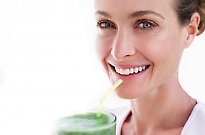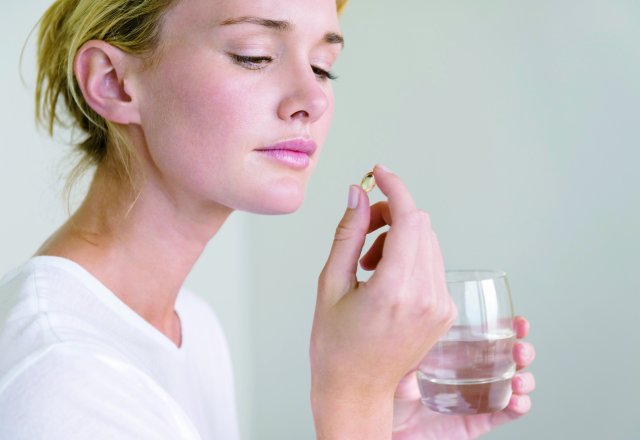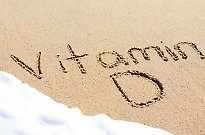
Vitamins and minerals – what should you take?

Even if you're diligent about your diet, you may fall short of some essential vitamins and minerals. Erin Kisby investigates the supplements that could give your health a much-needed boost.
Even if you're diligent about your diet, you may fall short of some essential vitamins and minerals. Erin Kisby investigates the supplements that could give your health a much-needed boost.
In a quest for good health, vitamin and mineral supplements are fast becoming the most popular choice of self-medication. The reason? It’s difficult to get all the essential nutrients you need from diet alone. “The soil our fruit and vegies are grown in is becoming depleted of natural minerals. Cold storage can further deplete vitamins and your lifestyle can take a toll on nutritional habits,” explains naturopath and Blackmores director of education Pam Stone. “You need to be honest and ask yourself if you’re really eating the recommended five serves of vegies and two of fruit a day, and most of us aren’t, which is where nutritional deficiencies can creep in.” While there’s no substitute for a well balanced diet, there may be times when you need a helping hand. Could your health benefit from one, or all of these supplements?
ZINC
According to an Australian Bureau of Statistics survey, women’s zinc intake is typically lower than the recommended dietary intakes. Unless you eat a substantial amount of meat, fish and poultry, which are the major contributors of zinc to the diet, you may be deficient. Zinc helps with wound healing, is involved in maintaining taste and smell and also supports normal growth and development during pregnancy, childhood and adolescence, reports the Dietitians Association of Australia.
Daily dose
8mg per day for women and 14mg per day for men.
Health benefits
Zinc may help boost your immune system by reducing the duration and severity of the common cold, when taken within 24 hours of the onset of symptoms, reports a study published in The Cochrane Library. The researchers found those taking zinc may be less likely to have persistent cold symptoms compared to those taking a placebo. "This review strengthens the evidence for zinc as a treatment for the common cold," said lead researcher Meenu Singh.
Natural sources
Zinc is found in lean red meat, poultry, beans, lentils, nuts, seeds, wholegrain cereals, seafood and dairy products.
Tip: If you’re a vegetarian your zinc requirements may be as much as 50 per cent greater than non-vegetarians, reports the Australian Government Health and Research Council.
CALCIUM
“I would be surprised if most women are getting enough calcium from their diet alone,” says Stone. However, it’s important you do, as low intakes of calcium are associated with low bone density, or osteoporosis. What’s more, calcium is essential for a healthy nervous system and cardiac function.
Daily dose
From the age of 19, men and women need 1000mg per day.
Health benefits
It’s well-established calcium builds stronger bones, and now research suggests calcium may play a role in cancer prevention. Higher intakes of dairy appear to be associated with a lower risk of cancers of the digestive system, especially colorectal cancer, reports a study published in the Archives of Internal Medicine. The study found women who consumed 1881 milligrams per day had a 23 per cent lower risk of cancer than those who consumed 494 milligrams per day. The health benefit of dairy may be due to it being relatively high in potentially anti-carcinogenic nutrients such as calcium and vitamin D, claim the authors.
Natural source
Calcium is found in milk, yoghurt and cheese, calcium-enriched soymilk, fish with edible bones like sardines, green leafy vegetables, egg yolks, almonds and sesame seeds and calcium fortified foods – including breakfast cereals and bread.
Tip: If you take calcium supplements, make sure you don’t take more than the amount recommended on the bottle as too much may cause gastrointestinal upsets, such as bloating and constipation.
MAGNESIUM
If coffee is your beverage of choice, you may need to look closely at your magnesium intake, advises Stone. “We tend to engage in habits that deplete magnesium in our body by accelerating its release, such as drinking coffee and alcohol,” she says. It’s essential you compensate for this as your body needs magnesium to help cope with stress, sugar cravings, PMT, painful periods, cramping and for normal muscle function. In addition, a magnesium supplement may help prevent 3am insomnia by reducing your stress levels.
Daily dose
320 mg per day for women and 420 mg per day for men.
Health benefits
If you would describe your memory as being like a sieve, consider this; magnesium may improve learning and memory, reports a study cited in the journal Neuron. In an earlier study, researchers found magnesium promoted communication between neurons in the brain, which may help enhance learning and memory and prevent age related decline and disease. To further investigate the link the researchers gave rats a magnesium supplement and tested for changes associated with memory. They found increased magnesium enhanced learning and memory. These findings suggest increasing magnesium may be useful for enhancing cognitive abilities, concluded the researchers.
Natural source
Most green leafy vegetables, cereal, grains, legumes, peas, red meat, beans, seeds and nuts contain varying levels of magnesium, as do some shellfish and spices.
Tip: “Avoid excessive supplementation of magnesium as it can lead to diarrhoea and stomach upsets,” advises Milena Katz, Accredited Practising Dietitian.
VITAMIN D
The sun gets a bad rap in terms of health, however, new research is stacking up to suggest it may be quite the health hero. The trouble is, most of the population are not getting enough of it. Vitamin D occurs in two forms, one is produced when sunlight hits your skin and the other is found in a limited range of foods. However, the sun is the best natural source of vitamin D, which you need for bone and muscle development. Vitamin D may also be associated with a reduced risk of bowel cancer, heart disease, infections and autoimmune diseases.
Daily dose
5mcg per day (1000 international units) for women and men.
Health benefits
The right time to start looking after the health of your heart is today. Why? Heart disease is the number one killer of Aussie women, claims the Heart Foundation. Ensuring you maintain a healthy dose of vitamin D may be one way to protect your heart. As research from the US Intermountain Medical Center Heart Institute found, 45 per cent of those with low levels of vitamin D are more likely to develop coronary artery disease.
Natural source
The sunshine vitamin is found in small quantities in some foods, such as fatty fish, liver, eggs and fortified foods, including some low-fat milk, reports The Medical Journal of Australia. However, those with fair to olive skin need two to three hours of sunlight (over a week) to the face, hands, and arms to help with winter vitamin D levels.
Tip: To reduce your skin cancer risk, log onto the SunSmart UV Alert website or download the SunSmart app for iPhone to determine when it’s safe to get some sun and whether or not sun protection is required.
IRON
Low iron is the world’s most common deficiency, says Stone. Menstruating women and those who don’t eat a lot of red meat are most at risk. Without intervention, if your dietary intake of iron doesn’t meet your body’s needs, it will eventually deplete your iron stores and can develop into iron deficiency anaemia. It’s important you see your doctor if you suspect you may be iron deficient, as a lack of iron can cause weakness and fatigue, as cells in your body aren’t getting enough oxygen.
Daily dose
18mg per day for women and 8mg per day for men.
Health benefits
Preliminary – and somewhat controversial – research suggests an iron deficiency may result in female hair loss, reports a study cited in the Journal of the American Academy of Dermatology. The researchers found treatment for hair loss improves when iron deficiency is treated. However, before you start taking iron supplements for a healthy head of hair, see your doctor because if you’re not deficient you can get an overload of iron, which is harmful.
Natural source
Iron in food can come in two general forms – haem and non-haem iron. Animal food sources such as meat, fish and poultry is a haem iron source and is readily absorbed, whereas iron from plant sources including grains, lentils and green leafy vegetables is non-haem and needs other nutrients such as vitamin C to improve absorption.
Tip: Cut back on the amount of tea and coffee you drink, especially around mealtimes, since the tannins in tea and coffee can block iron absorption.


